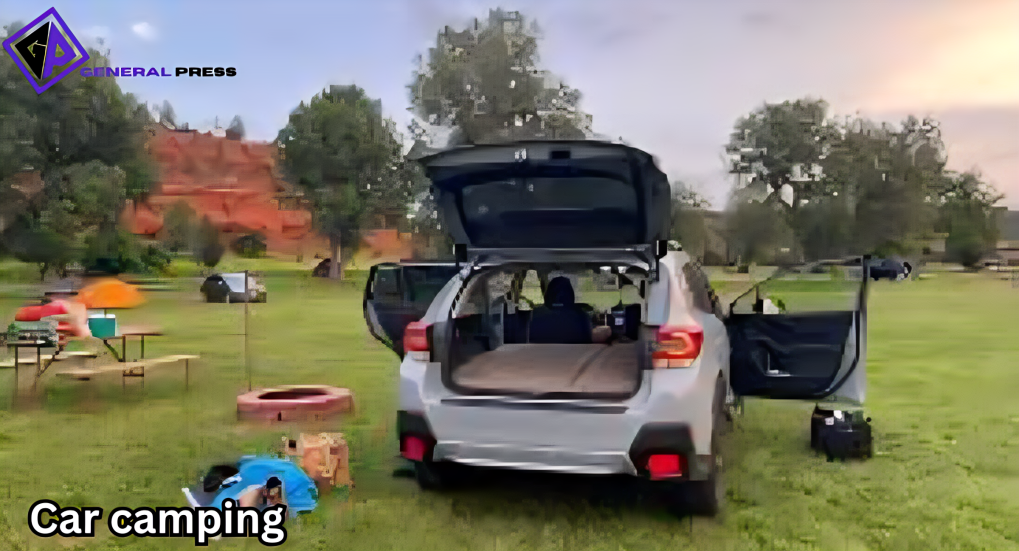Car camping has rapidly gained popularity among outdoor enthusiasts and nature lovers alike. It combines the thrill of camping with the convenience and comfort of your vehicle, making it an ideal choice for beginners, families, and seasoned adventurers. Unlike traditional camping, where you have to hike miles into the wilderness to set up a tent, car camping allows you to park close to your campsite, providing easy access to your gear and the comforts of home. This article explores the benefits, tips, and essentials for a successful car camping experience.
The Appeal of Car Camping
One of the biggest advantages of car camping is its accessibility. For those who are new to camping or aren’t interested in hiking long distances to reach a campsite, car camping offers an easier entry point into the world of outdoor adventures. It removes the need for heavy backpacks and provides the freedom to explore nature without the physical strain associated with traditional camping.
Another major benefit of car camping is the ability to bring along more gear. While traditional campers are restricted by the limited space in a backpack, car campers can load their vehicles with all the items they might need to make their experience as comfortable as possible. Whether it’s a large tent, a comfy sleeping pad, cooking equipment, or even a portable cooler filled with food and drinks, car camping allows for a greater level of convenience and preparation.
Moreover, car camping can be a year-round activity. In colder months, the warmth of your vehicle can provide a much-needed refuge from the chill of the outdoors. This makes car campinge an excellent option during all seasons, even in winter when more traditional campsites might be inaccessible.
Choosing the Right Car for Camping
Not all vehicles are created equal when it comes to car camping. While most people can use their standard car or SUV, some vehicles are better suited for campinge trips than others. SUVs, minivans, and trucks are popular choices for car campinge due to their spacious interiors and ability to accommodate more gear. A larger vehicle also offers extra room for passengers, ensuring that everyone can sleep comfortably.
For those who plan to sleep in their vehicle rather than a tent, consider a car with foldable or reclining seats, or a truck with a bed large enough to fit a mattress or sleeping bag. Some campers even equip their vehicles with roof racks or tents that attach to the back of the vehicle to maximize space and comfort.
Essentials for Car Camping
To make the most out of your car camping experience, it’s important to pack wisely. Here’s a list of essentials that will ensure a fun and comfortable trip:
- Tent: While some choose to sleep in their cars, it’s still important to bring a tent. Tents offer additional protection from the elements and provide a comfortable space to relax, store gear, or sleep.
- Sleeping Gear: Depending on your preference, you can opt for sleeping bags, air mattresses, or foam pads. If sleeping in the vehicle, consider a comfortable mattress that fits the dimensions of your car or truck bed.
- Cooking Equipment: A portable stove or grill is essential for preparing meals. Don’t forget essential tools like a lighter, pots, pans, utensils, and cleaning supplies. A cooler with ice packs will keep perishable food fresh, while a pantry of non-perishable items can ensure you always have something to eat.
- Lighting: A flashlight, headlamp, or lantern will come in handy after the sun sets. Consider solar-powered options for an eco-friendly choice.
- Clothing: Layering is key when it comes to car campinge. Even in the summer, temperatures can drop at night, so pack warm clothes for the evening and early morning hours.
- Water: Always bring enough water for drinking, cooking, and cleaning. A portable water filter or purification tablets are also helpful if you plan to camp near a water source.
- First-Aid Kit: Accidents can happen, so it’s essential to have a well-stocked first-aid kit. Include bandages, antiseptic wipes, pain relievers, and any personal medications you might need.
- Tools and Repair Kits: It’s a good idea to pack a basic tool kit, especially if you’re traveling to remote areas. A spare tire, jack, and jumper cables can be life-savers in case of an emergency.
- Fire Starter: If you plan to build a campfire, bring a fire starter or waterproof matches. Firewood can often be purchased at campsites, but it’s always a good idea to have your own on hand.
Where to Go Car Camping
Car camping is incredibly versatile when it comes to choosing a location. National parks, forests, and recreational areas are ideal spots for a camping getaway, and many of these locations have designated campsites with easy access for vehicles. State parks and even campgrounds in more rural areas also offer car campinge opportunities.
When selecting a location, it’s important to consider the type of environment you want to explore. Do you prefer coastal areas with scenic views, forested trails with an abundance of wildlife, or mountainous terrain perfect for stargazing? The possibilities are endless. Be sure to research the campsite beforehand to check for amenities like restrooms, picnic tables, or fire pits.
Tips for a Successful Car Camping Trip
- Plan Ahead: Research your campsite, especially if it requires reservations. It’s also helpful to know about any park regulations, weather conditions, or restrictions on campfires.
- Pack Smart: Avoid overpacking by bringing only the essentials. Keep your gear organized for easy access while you’re on the road.
- Respect Nature: Leave no trace by cleaning up after yourself and following the “pack it in, pack it out” principle. Dispose of trash properly and minimize your impact on the environment.
- Safety First: Make sure your vehicle is in good working condition before embarking on a long trip. Carry a roadside emergency kit, and make sure your phone is charged in case of an emergency.
FAQ:
1. What is car camping?
Car camping is a type of campinge where you drive to a campsite, set up camp near your vehicle, and enjoy the outdoors with easy access to amenities. It’s the perfect mix of adventure and comfort, allowing you to explore nature while still having access to your car for supplies and comfort.
2. Do I need special equipment for car camping?
While car camping doesn’t require specialized gear, it’s helpful to have campinge essentials like a tent, sleeping bag, camp stove, chairs, and a cooler. Since your car is nearby, you can also bring along more luxuries, such as extra blankets, portable power sources, or even a small campinge fridge.
3. Can I car camp at any campsite?
Not all campsites allow car camping. Many national parks, state parks, and private campgrounds have designated car camping sites. Be sure to check the campground’s policies before booking to confirm they offer car camping options.
4. Is car camping suitable for beginners?
Absolutely! Car camping is an excellent choice for beginners. It offers a great way to ease into camping without having to carry all your gear on your back. You can also enjoy more comfort, such as a flat surface for sleeping and nearby bathroom facilities in many campsites.
5. How do I choose a good car camping location?
When choosing a car camping site, consider factors like proximity to nature (hiking trails, lakes, etc.), availability of amenities (showers, restrooms, water), and the type of environment (forest, beach, mountain). You can check online reviews or use camping apps to find the best spots for your needs.
Conclusion
Car camping is the perfect way to enjoy the outdoors while keeping the comforts of home close at hand. Whether you’re a first-time camper or an experienced adventurer, car camping offers flexibility, convenience, and the opportunity to explore nature in a whole new way. By choosing the right location, packing the right gear, and following some simple tips, you can enjoy a memorable and stress-free camping experience. So, load up your car, hit the road, and let the adventure begin!




